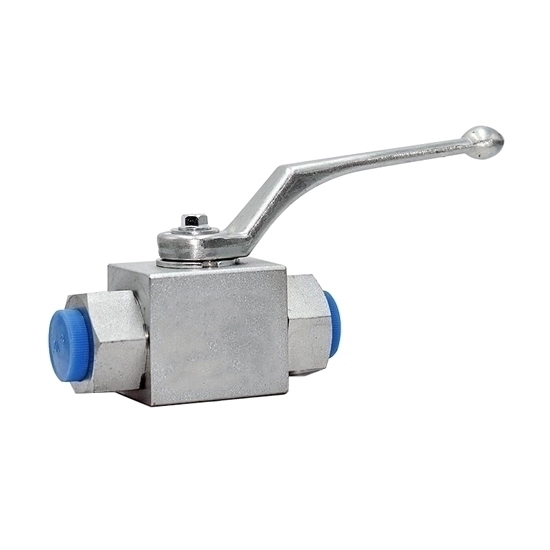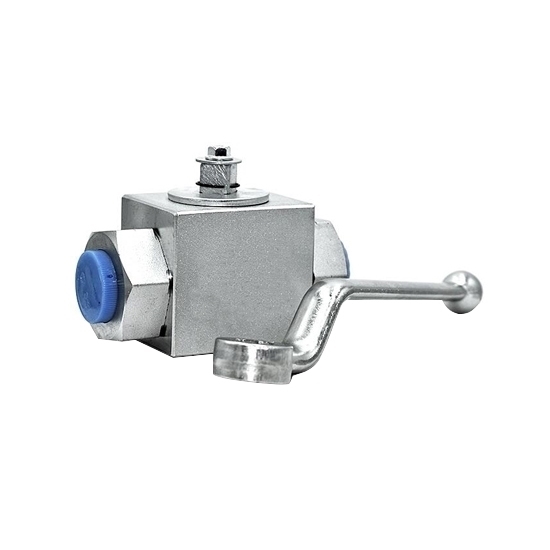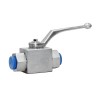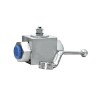



Why buy from us?
Lorem Ipsum is simply dummy text of the printing and typesetting industry.
Ask a Question About This Product
- Stock: In Stock
- Model: KOLAUT-HPBV-DN32
- Weight: 1.00
- SKU: KOLAUT-HPBV-DN32
Available Options
Note: This ball valve cannot be used for drinking water.
G1-1/4 inch hydraulic high pressure ball valve is a type of valve used in hydraulic systems to control the flow of fluids under high pressure. It consists of a spherical closure element (the ball) with a hole through it that can be rotated to either allow or block the flow of fluid. The 2 way ball valve is operated by a lever, handle, or actuator that turns the ball to open or close the valve.
Specification
- Model: KOLAUT-KHM-G1-1/4
- Type: 2 Way High Pressure Ball Valve
- Drive Mode: Hydraulic
- Port Size: G1-1/4 inch (DN32)
- Nominal Pressure: 315bar
- Applicable Temperature: -29℃~120℃
- Applicable Media: Water, Oil
- Body Material: Carbon Steel
Dimension (Unit: mm)
| DN | LW | d1 | i | L | L1 | B | H | h1 | h2 | h3 | SW1 | SW2 |
| 32 | 30 | G1-1/4" | 22 | 110 | 84 | 75 | 108 | 41 | 87.5 | 14 | 17 | 60 |
Application
Tips: What causes hydraulic ball valve failure?
Hydraulic ball valve failure can be attributed to several factors. Common causes include:
- Wear and Tear: Over time, the moving parts of the valve may experience wear due to the flow of hydraulic fluid, leading to leaks or reduced performance.
- Contamination: The presence of contaminants, such as dirt, debris, or corrosive substances, can damage valve seals and seats, resulting in leakage or improper sealing.
- Overpressure: Exceeding the valve's pressure rating can cause it to fail, leading to cracks, deformation, or complete rupture.
- Improper Installation: Incorrect installation or inadequate torque on fasteners can lead to misalignment, which hampers valve function and causes leaks.
- Corrosion: Exposure to corrosive fluids or environmental conditions can deteriorate the valve's materials, potentially causing failure.
- Blockages: Obstructions within the valve can prevent it from opening or closing properly, reducing its effectiveness.
To prevent hydraulic ball valve failures, regular maintenance, proper installation, and suitable materials selection are essential.

















